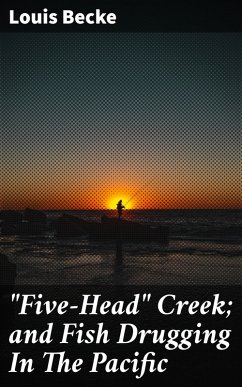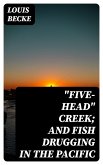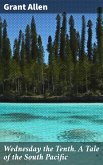In "Five-Head" Creek; and Fish Drugging In The Pacific, Louis Becke masterfully intertwines travel narrative and ecological commentary, presenting a vivid portrayal of the Pacific Islands. The book is rooted in the author'Äôs firsthand experiences and observations, showcasing his keen eye for detail and a rich narrative style imbued with lush descriptions of the landscape and its unique inhabitants. Becke's exploration of fish drugging delves into the environmental and ethical implications of such practices, placing his work within the growing discourse on sustainable fishing and colonial exploitation during the late 19th century. Louis Becke, an Australian writer and maritime expert, traversed the Pacific Islands for years as a seaman before turning to writing. His intimate knowledge of the region's cultures and ecosystems informs his work, allowing him to craft authentic and insightful narratives. Becke's engagements with both the beauty and the challenges of colonial life in the Pacific reflect his broader concerns about the interplay between humanity and nature, marking him as a significant figure in Australian literature and marine geology. "Five-Head" Creek; and Fish Drugging In The Pacific is highly recommended for readers interested in environmental ethics, colonial history, and travel literature. Becke's narrative not only entertains but also provokes critical thought about the impact of human actions on marine environments, making it a must-read for those seeking to understand the delicate balance between culture and ecology.
Dieser Download kann aus rechtlichen Gründen nur mit Rechnungsadresse in A, B, BG, CY, CZ, D, DK, EW, E, FIN, F, GR, H, IRL, I, LT, L, LR, M, NL, PL, P, R, S, SLO, SK ausgeliefert werden.









